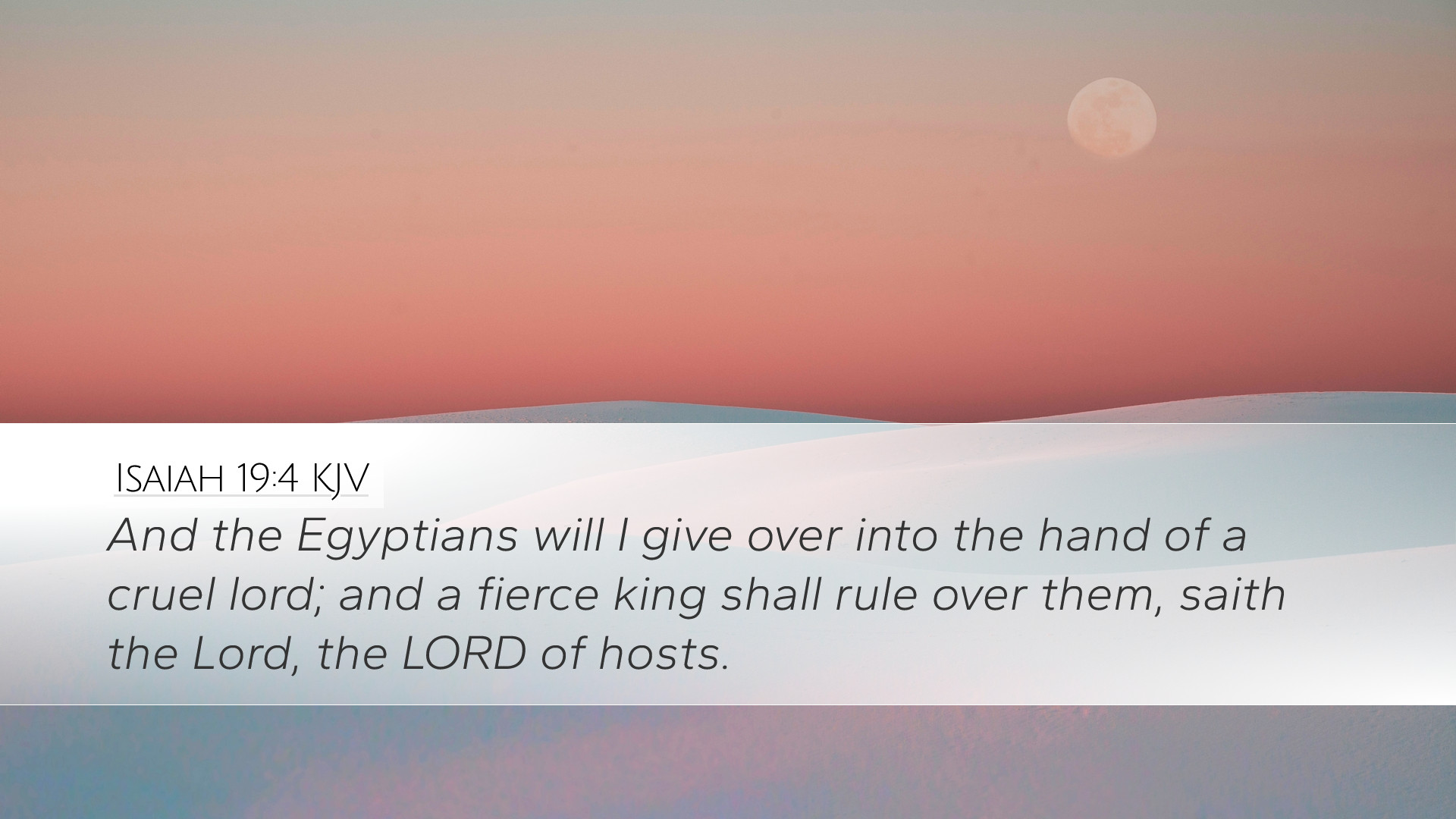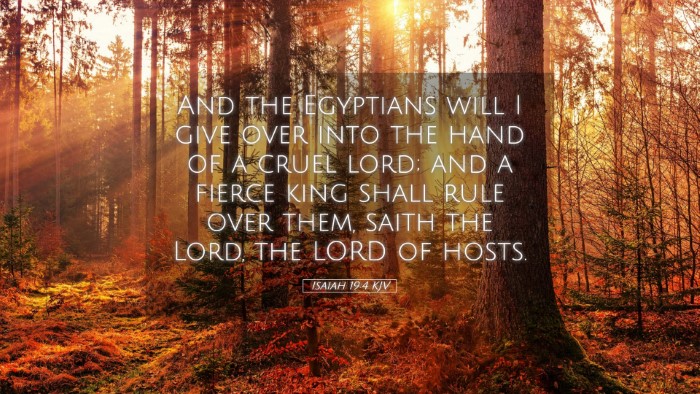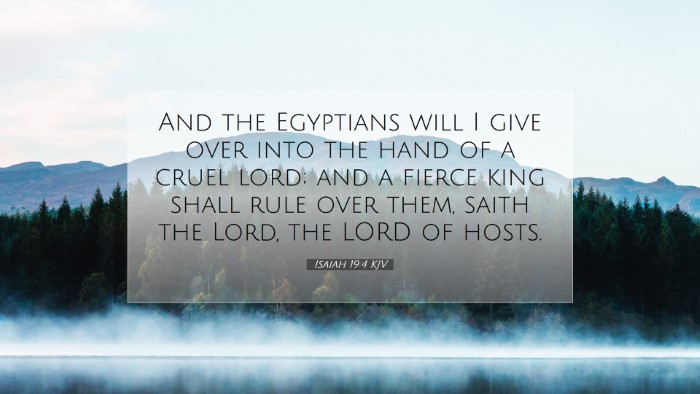Commentary on Isaiah 19:4
Verse Context: Isaiah 19:4 states, "And the Egyptians will I give over into the hand of a cruel lord; and a fierce king shall rule over them, saith the Lord, the Lord of hosts." This passage addresses the judgment of God upon Egypt, illustrating His sovereignty and the dire consequences of rebellion against Him.
Historical Background
The nation of Egypt has a complex history with Israel, often oscillating between periods of dominance and subjugation. In the time of Isaiah, Egypt was a significant regional power. However, the trust placed in political and military allegiances over spiritual adherence led to swift decline. The prophecy reflects God’s judgement on the Egyptians' reliance on their strength instead of divine guidance.
Theological Insights
Isaiah's prophetic declaration serves multiple theological purposes. Firstly, it reinforces the concept of divine sovereignty—God asserts control over nations and their rulers. The harsh imagery of a “cruel lord” and a “fierce king” signals severe oppression as punishment for Egypt's idolatrous practices and national pride.
The Cruel Lord
Exploring the phrase “cruel lord,” commentators like Matthew Henry emphasize that this cruel rule reflects God’s instrument for judgment. Dominance by a tyrant symbolizes not just political power, but a spiritual dislocation from true worship. The commentary argues that harsh leadership serves as a divine response to the moral and ethical decay prevalent among the Egyptians.
The Fierce King
In harmony with Henry’s insights, Albert Barnes elaborates on the term “fierce king.” He posits that this figure likely alludes to the Assyrians or Babylonians, who would exert their dominance over Egypt. This prophetic reference emphasizes that God will utilize foreign powers as agents of His divine purposes, serving both as judgment and a reminder of His overarching authority.
Lessons for Today
The relevance of Isaiah 19:4 transcends its historical situation, providing significant lessons for contemporary believers:
- Dependence on God: Just as Egypt faced consequences for their self-reliance, modern believers are cautioned against placing trust in worldly systems.
- The Nature of Leadership: The characteristics of leaders are indicative of a society’s faithfulness. The cruel lord reflects the moral condition of the nation.
- Divine Sovereignty: This passage reinforces the notable truth that God is in control of historical cycles, reminding us that His purpose prevails.
Reflections from Adam Clarke
Adam Clarke provides a poignant reflection on the broader implications of this judgment, noting the deep interconnection between moral and spiritual integrity and societal welfare. Clarke emphasizes that the text reveals a profound truth: human rebellion against divine mandates incurs severe repercussions. This insight invites contemporary leaders to model their authority after God’s righteousness rather than temporal gain.
Conclusion
Isaiah 19:4 stands as a powerful exhortation that speaks of divine judgement, revealing the interrelation between human agency and divine sovereignty. As pastors, students, theologians, and Bible scholars delve into this text, may they uncover the richness of its truths and apply them in both historical and contemporary contexts.


